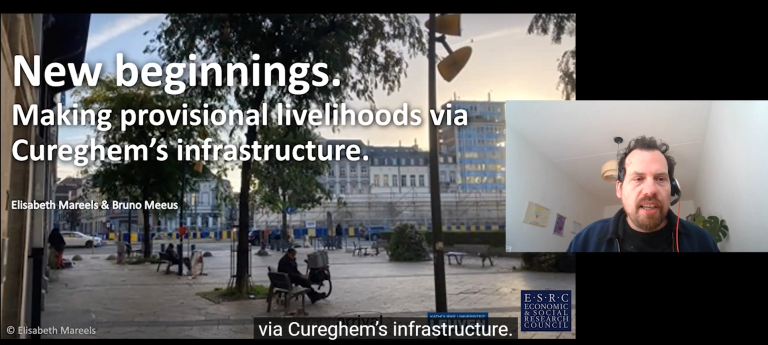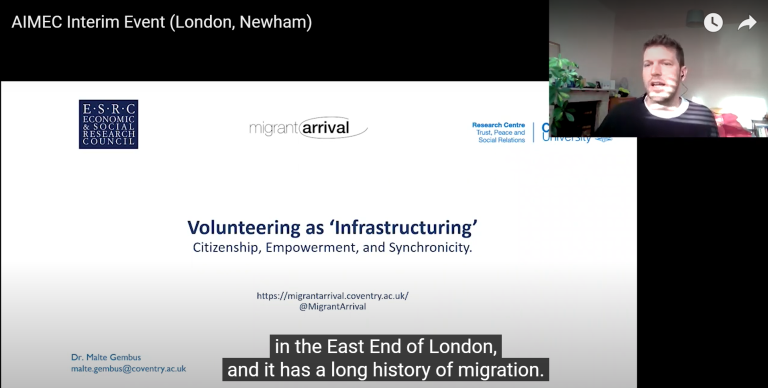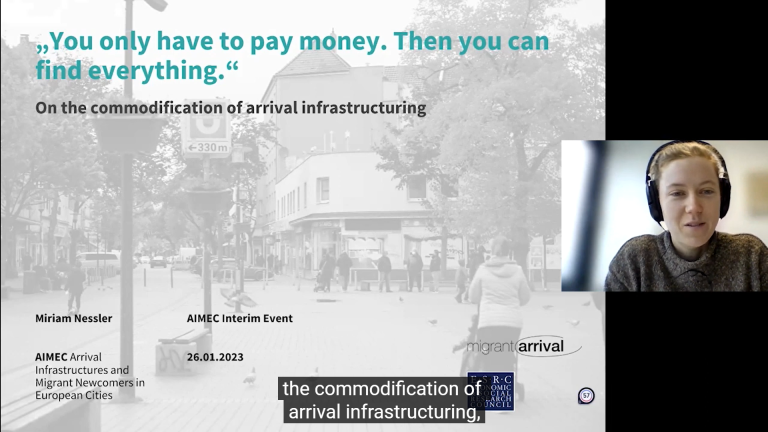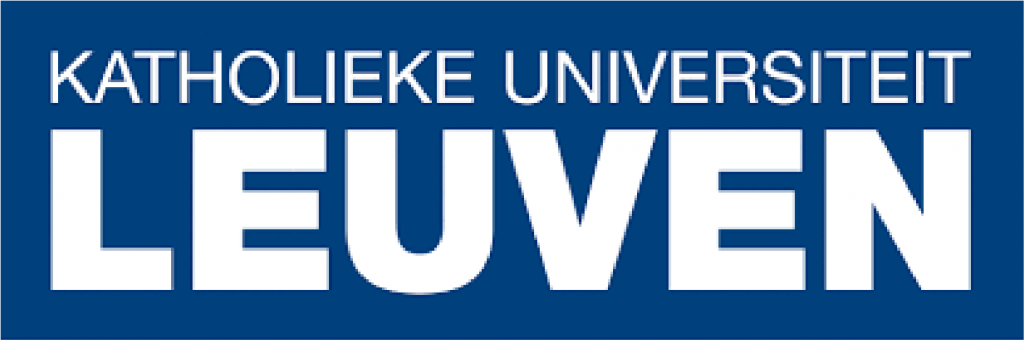AIMEC Interim Event



The AIMEC project is progressing rapidly, and we have recently ‘concluded’ the fieldwork phase in the three sites. Of course, fieldwork is an on-going process which escapes clear-cut categorisations of start and end. However, our team had a first go at working with the data collected and at developing frameworks and focal points for analysis. We held an interim event on the 26th of January during which we presented some of our thinking to a wider audience of scholars and practitioners in order to get feedback. We held the event online to ensure that people across the three sites were able to take part. The event was well attended by a number of international colleagues and stakeholders who listened to three presentations, one from each site. In a second step, we discussed the topics at hand in lively breakout group conversations.
The three focal points were as follows:
- Commercial Brokering: Both the presentation from our Dortmund team as well as the breakout groups debated what happens when newcomers access support structures that involve payment for services. Commercial brokering was discussed stressing both the potential of helpful, immediate and culturally sensitive acts of support and the risks and dangers of potentially exploitative structures. During the breakout group discussion our international colleagues contributed with interesting examples of commercial brokering from a variety of settings (Turkey, Italy, Hungary, Spain, and Sweden). Efforts by state authorities to de-commodify the structures of support available to newcomers were explored, as well as ‘grey zones’ of (il)legality.
- Neighbourhood Scale: Our Brussels team engaged with some of the core ideas that underpin our research project: the scale of the neighbourhood as a vantage point for exploring how and by whom arrival is ‘infrastructured’. The presentation laid great emphasis on polycentricity, exploring how people in the process of building new beginnings connect their fate to multiple centres of normativity, some of them located within Cureghem, others far beyond the neighbourhood. In the breakout groups the boundaries of neighbourhoods were discussed, moving between administrative categories and local perceptions. In line with the presentation, the discussion further looked at the neighbourhood as an ‘entry point’ rather than an ‘end point’ and explored varying discourses of integration.
- Volunteering: The presentation from our London site focussed on the role volunteering plays in the arrival process by exploring what kinds of conflicts and solidarities are produced when volunteers who support newly arrived people are themselves in precarious migration situations. In the breakout groups we were able to deepen the implications such arrangements have on negotiations of citizenship and what ‘contributing to society’ entails. Some critical ideas were voiced regarding ‘volunteering as empowerment’, and we reiterated that any infrastructuring practices take place against the backdrop of exclusion and hostile environments.
We left the event with much enthusiasm and food for thought for the next phase of our project. A massive thank you to all the attendees who kindly shared their ideas about arrival and our research and we are looking forward to more of these conversations in the future.
All presentations can be watched here.






